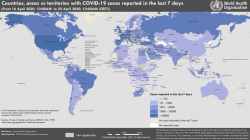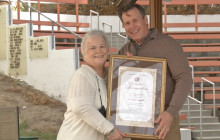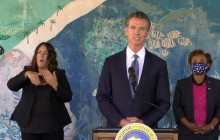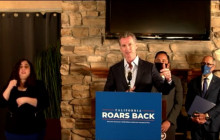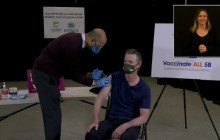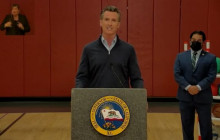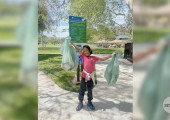|
World Health Organization briefing for Wednesday, April 22, 2020, Geneva, Switzerland. “There are disturbing reports in many countries, in all regions, about discrimination related to COVID-19. Stigma and discrimination are never acceptable anywhere at anytime, and must be fought in all countries. As I have said many times, this is a time for solidarity, not stigma.”
Prepared Opening Remarks Good morning, good afternoon and good evening. Globally, almost 2.5 million cases of COVID-19 have now been reported to WHO, and more than 160,000 deaths. We see different trends in different regions, and even within regions. Most of the epidemics in Western Europe appear to be stable or declining. Although numbers are low, we see worrying upward trends in Africa, Central and South America, and Eastern Europe. Most countries are still in the early stages of their epidemics. And some that were affected early in the pandemic are now starting to see a resurgence in cases. Make no mistake: we have a long way to go. This virus will be with us for a long time. There’s no question that stay-at-home orders and other physical distancing measures have successfully suppressed transmission in many countries. But this virus remains extremely dangerous. Early evidence suggests most of the world’s population remains susceptible. That means epidemics can easily re-ignite. One of the greatest dangers we face now is complacency. People in countries with stay-at-home orders are understandably frustrated with being confined to their homes for weeks on end. People understandably want to get on with their lives, because their lives and livelihoods are at stake. That’s what WHO wants too. And that’s what we are working for, all day, every day. But the world will not and cannot go back to the way things were. There must be a “new normal” – a world that is healthier, safer and better prepared. The same public health measures we have been advocating since the beginning of the pandemic must remain the backbone of the response in all countries. Find every case; Isolate every case; Test every case; Care for every case; Trace and quarantine every contact; And educate, engage and empower your people. The fight cannot be effective without empowering people and without the full participation of our people. Countries that don’t do these six central things, and do them consistently, will see more cases, and more lives will be lost. To be clear, WHO’s advice is to find and test every suspected case, not every person in a population. WHO is committed to supporting all countries to save lives. And we are also committed to human rights, and to fighting stigma and discrimination wherever we see it. There are disturbing reports in many countries, in all regions, about discrimination related to COVID-19. Stigma and discrimination are never acceptable anywhere at anytime, and must be fought in all countries. As I have said many times, this is a time for solidarity, not stigma. WHO is also working actively to address the impacts of the pandemic on mental health. Working with mental health experts around the world, WHO has produced technical guidance for individuals and health workers, recognizing the enormous strain they’re under. In addition, we’ve also developed a free children’s book about COVID-19 with partners from UNICEF, UNHCR, IFRC and UNESCO among others. In less than two weeks, we received requests to translate the book into more than 100 languages, and the book is now being used among Rohingya children in Cox’s Bazaar, and children in Syria, Yemen, Iraq, Greece and Nigeria. === One of WHO’s core functions is to provide evidence-based technical advice to countries. This is not something we do alone. Every day, we work with thousands of experts all over the world to collect, analyze and synthesize the best science, and turn it into guidance that we give back to countries. Through thousands of hours of discussion, we have exchanged first-hand experience and debated the science to generate the advice that we make available to all countries. We then work with countries to turn that guidance into action. WHO has staff in 150 countries all over the world, working directly with governments, scientists and partners to coordinate national preparedness and response plans, and to implement them. I would like to use this opportunity to thank all my colleagues all over the world, in all 150 countries, for their hard work and commitment. In addition, WHO has sent more than 70 surge teams to countries to strengthen surveillance, and provide advice on infection prevention, how to treat patients, risk communication, lab capacity, data management, and much, much more. We’ve also brought in external support through our Global Outbreak Alert and Response Network – GOARN – and specialist Emergency Medical Teams, or EMTs. In addition to supporting countries, we also track progress globally. Among countries that have reported data to WHO, 78% have a preparedness and response plan in place; 76% have surveillance systems in place to detect cases; And 91% have laboratory testing capacity for COVID-19. But we still see many gaps around the world. Only 66% of countries have a clinical referral system in place to care for COVID-19 patients; Only 48% have a community engagement plan; And only 48% have an infection prevention and control programme and standards for water, sanitation and hygiene in health facilities. In other words, there are still many gaps in the world’s defences, and no single country has everything in place. WHO will continue working with countries and the international community to close these gaps and build sustainable capacities for now and the future. But we’re not alone. We work with partners all over the world to harness their expertise and networks. Earlier this week WHO and the International Telecommunication Union announced that we’re partnering with telecommunications companies to reach people directly on their mobile phones with text messages about COVID-19. This will help reach half of the world’s population that doesn’t have internet access, starting in the Asia Pacific region and then rolling out globally. We’re calling on all telecommunications companies globally to join this initiative to help unleash the power of communication technology to save lives. We also issued a call with the World Trade Organization, calling on countries to ensure the normal cross-border flow of vital medical supplies and other goods and services, and to resolve unnecessary disruptions to global supply chains. We need to ensure these products reach those in need quickly, and we emphasize the importance of regulatory cooperation and international standards. === Finally, with the holy month of Ramadan starting tomorrow, I would like to wish all Muslims around the world Ramadan kareem. This is a season of reflection and community – an opportunity for kindness and solidarity. Earlier today I spoke to health ministers from across the Eastern Mediterranean region. I assured them that we will stand in solidarity with them, as we will stand with all countries. We’re all in this together. And we will only get through it together. Again, Ramadan kareem. Shukran jazeelan. |
